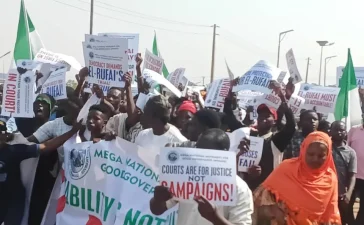Over the weekend, Abuja witnessed a reduction in the length of petrol queues across several parts of the Federal Capital Territory (FCT), although some filling stations remained closed. Despite the slight easing, many stations continued to sell petrol at elevated prices ranging between N700 and N800 per liter. In the outskirts of the city, prices soared to as high as N950 per liter, reflecting ongoing distribution challenges and the slow circulation of fuel.
For over a month, Abuja has grappled with a severe scarcity of Premium Motor Spirit (PMS), commonly known as petrol, which has recently spread to other states. At the height of the crisis, prices exceeded N1,000 per liter in some areas. The fuel shortage has disrupted commercial and social activities, creating long queues and widespread frustration among motorists.
Recent developments indicate some improvement in Abuja, with notable reductions in queue lengths at key locations. The Conoil and Total filling stations opposite the NNPC headquarters in Abuja, as well as the NNPC mega stations in Zone 1 and near GSM village, reported shorter lines compared to earlier in the week. The NNPC, which continues to sell at a subsidized rate of N617 per liter, has played a crucial role in alleviating some of the scarcity.
However, the relief in Abuja has not yet reached neighboring states such as Kaduna, Kano, Niger, and Nasarawa, where fuel shortages and high prices persist. The disparity in availability and pricing underscores ongoing logistical and distribution challenges within the fuel supply chain.
As the situation continues to evolve, both the federal and state governments are under increasing pressure to address the root causes of the scarcity and implement effective measures to stabilize fuel supply and prices. The current scenario highlights the urgent need for a coordinated response to ensure consistent and affordable fuel access across the country.







